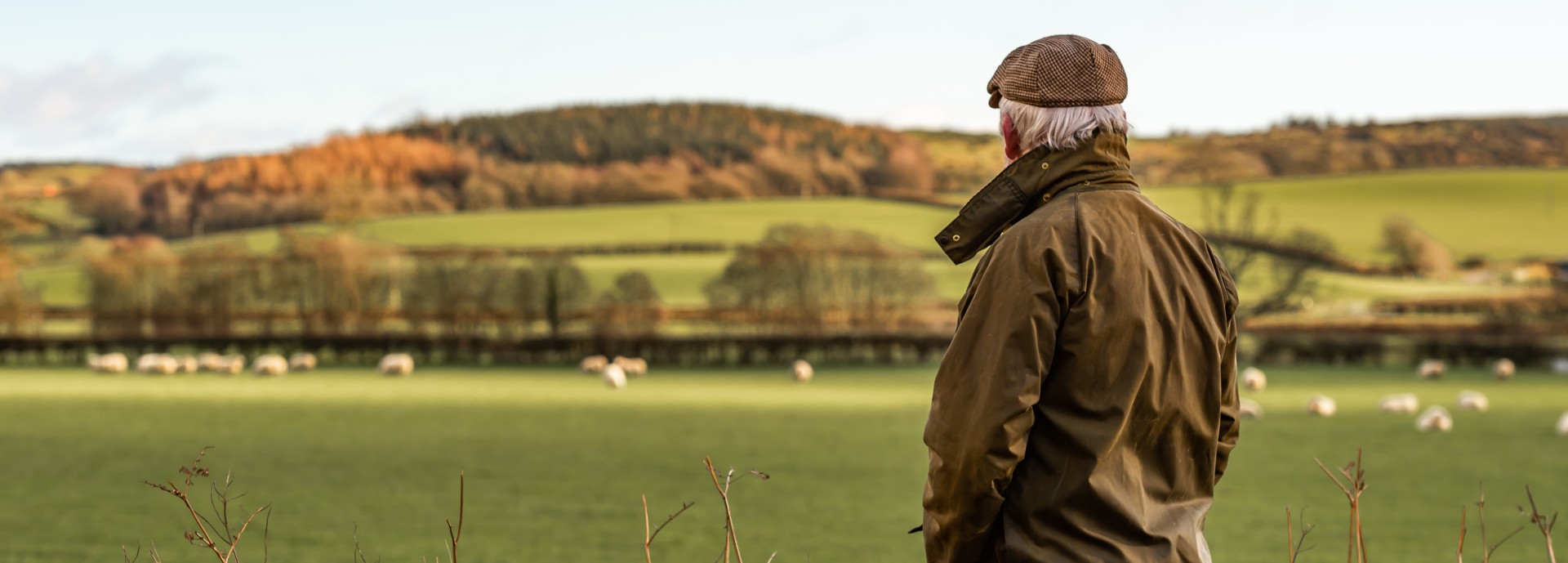Experts will explore the best interventions to help support the mental health and wellbeing of Scotland’s farming and crofting communities, as part of a new study.
Led by the University of Stirling and Scotland’s Rural College (SRUC), the study will address increasing rates of depression and high instances of suicide within the farming community – and attempt to establish the best interventions for those in need.
Professor Margaret Maxwell, Director of the Nursing, Midwifery and Allied Health Professions Research Unit at Stirling, and Dr Kate Stephen, of SRUC in Inverness, are leading the research. It will seek to understand the preferences and views of farmers and crofters on two possible interventions – one delivering emotional and social support, and the other an online psychological therapy.
Professor Maxwell said: “The underlying reasons for poor mental health among the farming and crofting community lies in the unique social, environmental and economic challenges of rural food production, therefore an intervention that is targeted towards helping farmers and crofters cope with these issues may be more acceptable and beneficial.
“We know that farmers are more likely to turn to their own communities for support than to health or social work authorities, with many preferring to engage with advice from colleagues such as vets or use anonymous supports such as telephone or online resources. However, there is no current knowledge concerning preferences, and acceptability or uptake, of remote interventions and how these can best be signposted to farmers and crofters.”

Faculty of Health Sciences and Sport
The underlying reasons for poor mental health among the farming and crofting community lies in the unique social, environmental and economic challenges of rural food production, therefore an intervention that is targeted towards helping farmers and crofters cope with these issues may be more acceptable and beneficial.
Dr Stephen, a behavioural scientist, said: “There are always challenges in this sector and farmers and crofters are used to having to cope, often by themselves. At times, it can feel overwhelming. It’s not clear what support is available and it’s not always easy to ask for help.
“This project is looking at what types of support farmers and crofters could benefit from, and how this could be adapted to suit them best. We’re interested in the wider farming and crofting communities – not just owners but farm workers and family members, whether the farm or croft is large or small.
“We’re thinking about how to get in early, to prevent things getting worse, how to help farming and crofting people to recognise when they are struggling in themselves, and what ‘tools’ help them to turn things around. We would also like to hear from people from farming and crofting communities who understand what it feels like to struggle. We’d like to include people who don’t usually pick up the phone to ask for help.”
Funded by the Scottish Government’s Chief Scientist Office (CSO), the new study has received support from partners including the Royal Scottish Agricultural Benevolent Institution, Support in Mind Scotland, The National Rural Mental Health Forum, and NHS Highland.
Running until June 2022, the research will be conducted in the Highlands and Shetland Islands and the research team are appealing for volunteers within these areas who may be interested in participating. All farm workers, unpaid workers and family members who are currently experiencing a common mental health problem, such as anxiety or depression, are invited to participate. They will receive either an online-based psychological therapy, a social and emotional support service, or a combination of both, for up to eight weeks.
If you would like to volunteer, or to find out more information, please email: farmingminds@sruc.ac.uk

